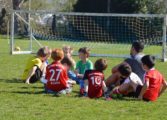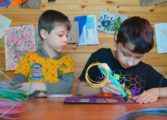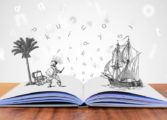FINDING BOOKS: YOUR ULTIMATE GUIDE TO NAVIGATING THE WORLD OF LITERARY TREASURES

Introduction:
In today’s digital age, finding books has become a seamless process with the advent of online resources and platforms. Whether you are a seasoned bibliophile or a curious reader seeking new literary adventures, this article will serve as your ultimate guide to discovering books. We will delve into the different aspects of finding books, from understanding the importance of research to exploring various platforms to enhance your reading experience. So, let us embark on this journey together and uncover the secrets of finding books.
1. Understanding the Art of Finding Books:

Finding books is not simply about visiting your local library or bookstore. It is a meticulous process that requires research, exploration, and understanding your personal reading preferences. Here are some key points to consider:
Researching Book Genres: Begin by exploring different book genres to identify your areas of interest. From classic literature to contemporary thrillers, the literary world offers a vast array of genres to ignite your imagination.
Identifying Reading Tastes: Reflect on your favorite books or authors to gain a better understanding of your reading preferences. By recognizing what captivates your interest, you can refine your search and discover similar works that resonate with you.
Leveraging Recommendations: Utilize recommendations from trusted sources such as friends, book clubs, or online forums. Their insights can introduce you to hidden gems and expand your literary horizon.
2. Evolution of Book Discovery:
The journey of finding books has evolved significantly over time. Let us take a historical tour highlighting some key milestones in this evolution:
Traditional Bookstores: In earlier centuries, physical bookstores were the primary destination for bibliophiles. Customers would peruse the shelves, relying on their instincts or recommendations from knowledgeable staff.
Libraries: The establishment of public libraries broadened access to books. With card catalogs and librarians’ guidance, readers could delve into a treasure trove of knowledge.
Online Booksellers: The rise of online giants like Amazon revolutionized the way we find books. With user reviews, personalized recommendations, and vast catalogs, digital platforms made book discovery more accessible and convenient.
E-books and Audiobooks: The advent of e-readers and audiobooks brought a new dimension to book discovery. Online platforms offered an extensive range of digital works, allowing readers to access literature anytime, anywhere.
3. Exploring Online Resources:
Today, the internet is a treasure trove of resources for book enthusiasts. Here are some platforms and techniques you can explore to enhance your book-finding experience:
Online Bookstores: Beyond online marketplaces, numerous dedicated online bookstores offer unique collections and specialized genres. Research these platforms and discover books tailored to your interests.
Book Recommendation Websites: Several websites provide tailored book recommendations based on your reading history or preferred genres. These resources save you time and introduce you to unexpected literary gems.
Social Media Groups and Book Clubs: Engage with like-minded readers through social media platforms and online book clubs. Participating in discussions and sharing recommendations can lead to exciting discoveries.
Book Blogs and BookTube: Book bloggers and YouTubers provide insightful reviews, author interviews, and reading recommendations. These platforms offer a wealth of content to assist you in finding your next literary adventure.
Conclusion:
Finding books is an art that combines passion, curiosity, and persistence. By embracing the digital age and utilizing online resources, readers can uncover literary treasures that match their preferences and broaden their horizons. Remember to conduct thorough research, explore different platforms, and tap into the wisdom of fellow book lovers. So, embark on this delightful journey of discovery, and let the power of literature guide your next reading escapade.
Note: To optimize for featured snippets on Google, ensure your article contains informative headings (h2 tags) and utilizes bullet points when discussing key points or tips. Additionally, structure the article in a clear and concise manner using proper HTML formatting, including tags for the main title and subheadings appropriately.
















































